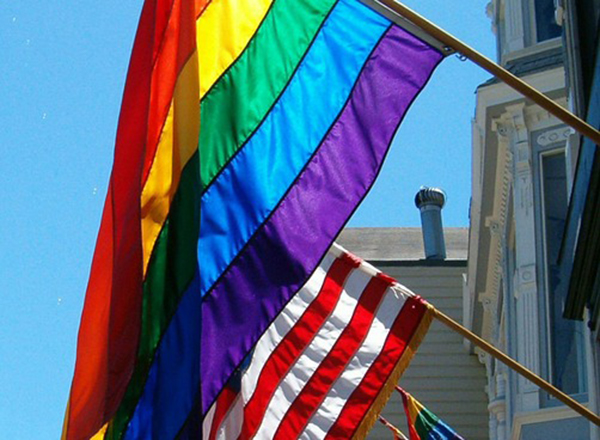US Justice Department says anti-discrimination law doesn’t protect LGBT workers

The US Justice Department (DOJ) has filed a brief stating that a major piece of federal civil rights legislation does not protect employees from workplace discrimination based on their sexual orientation.
The DOJ made the intervention on July 26 in a case alleging that a New York skydiving instructor, Donald Zarda, was fired by his employer after telling a female customer that he was gay. The client’s husband later complained about this, leading to Zarda's dismissal.
Zarda died in a skydiving accident before the case went to trial, but executors of his estate have continued the lawsuit on his behalf.
The DOJ’s brief stated that Title VII of the 1964 Civil Rights Act (which bars discrimination in the workplace based on “race, color, religion, sex or national origin”) “does not prohibit discrimination because of sexual orientation." It continued that the matter had “been settled for decades,” saying that “[a]ny efforts to amend Title VII’s scope should be directed to Congress rather than the courts.”
The court papers, filed the same day as President Donald Trump’s announcement on Twitter that transgender people are to be banned from serving in the US military, has been seen as a reversal of the position taken by former President Barack Obama. Whilst the law was never officially extended towards covering sexual orientation under Obama, both the US Equal Employment Opportunity Commission and DOJ treated discrimination on the basis of sexual orientation and gender identity as being, de facto, a form of sex discrimination under Title VII.
James Esseks, director of the American Civil Liberties Union's LGBT and HIV Project, criticized the position taken by the DOJ as a "gratuitous and extraordinary attack on LGBT people's civil rights."
"Fortunately, courts will decide whether the Civil Rights Act protects LGBT people, not an Attorney General and a White House that are hell-bent on playing politics with people's lives…We are confident that the courts will side with equality and the people."
Legislation countering workplace discrimination against LGBT people is in fact relatively uncommon globally. As Nick Drydakis highlights in his article Sexual orientation and labor market outcomes, “Fewer than 20% of countries have adopted sexual orientation anti-discrimination laws in employment.”
He continues that “people who have a minority sexual orientation experience more obstacles to getting a job, lower job satisfaction, earning bias (especially gay men), and more bullying and harassment than their heterosexual counterparts. These findings imply that legislative protection constitutes only a small step toward improving the employment circumstances and general well-being of people who are gay or lesbian and highlights the need for other policy interventions.”
Read more IZA World of Labor articles on the subject of workplace discrimination.
Find a topic spokesperson here.